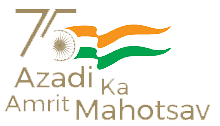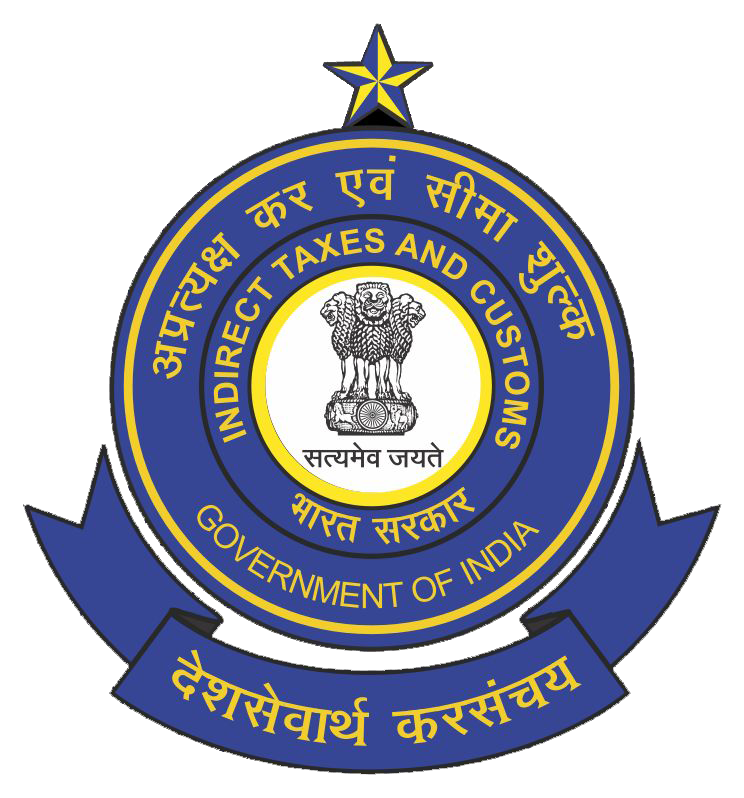The Directorate of Revenue Intelligence (DRI), under the Central Board of Indirect Taxes and Customs (CBIC), Department of Revenue, Ministry of Finance, Government of India, is the apex agency of the Indian Customs in the field of anti-smuggling in India. DRI enforces the provisions of the Customs Act, 1962 and over fifty other allied Acts including the Arms Act, NDPS Act, COFEPOSA, Wildlife Act, Antiquities Act etc. DRI undertakes collection, collation, analysis and dissemination of intelligence relating to smuggling, carries out investigations, adjudication of cases and prosecution of the arrested persons. Ever since its inception in 1957, DRI has discharged its responsibilities with commitment and professionalism and has made a significant contribution in safeguarding India's interest, at home and abroad and in ensuring national security.
Smuggling is the secret movement of goods across national borders to avoid Customs Duties or import or export restrictions. It typically occurs when either the customs duties are high enough to allow a smuggler to make a large profit on the clandestine goods or when there is a strong demand for prohibited goods, such as narcotics or weapons.
In recent times following trends have been observed:
Gold
It remains to be a concern as a major item of smuggling. Intelligence indicates that large amount of gold is being smuggled from Myanmar, Nepal and Bangladesh border to India through the bordering areas of North-Eastern states. The smuggled gold is being carried to major cities mostly either by concealment in their luggage/person. It has also been noticed that passengers sometimes operate in groups and travel from small cities to metro cities by bus/train in order to avoid detection. Gold is smuggled in the country by way of concealment in various equipments made up of heavy metals or by covering/plating with other metals to avoid detection. Flights coming from Gulf and South-East Asian countries destined for metro citites like Delhi, Mumbai, Chennai, Hyderabad, Bengaluru etc. still continued to be vulnerable.
Narcotics
The smuggling of Narcotics is also one of the major area of concern. Intelligence reports indicated that Ketamine, Mephedrone and Ephedrine continued to be lucrative items for smuggling. Recently, DRI had unearthed a number of cases wherein operators are using defunct medical factories in areas around Rajasthan, Maharashtra, Andhra Pradesh etc. to manufacture Narcotic drugs. Large scale illegal exports of drugs and psychotropic substances to Australia, Malaysia, Singapore, UK and Europe are also taking place through courier parcels.
Foreign Currency
Recent seizure of Foreign Currency at New Delhi, Chennai, Calicut and Mangalore airports also suggested that the same is being smuggled in/out of India through carriers. Intelligence suggests that Arms and Ammunition are being smuggled in disassembled form through foreign post offices. Intelligence also suggested that Electronic goods like I-pads, I-phone, tablets, memory cards etc. continue to be smuggled through courier and post parcel modes.
Trade Based Money Laundering
DRI is alert to the possibility of trade based money laundering (TBML) being resorted to by certain elements. Financial Action Task Force describes TBML as the process of disguising the proceeds of crime and moving value through the use of trade transactions in an attempt to legitimize their illicit origins. In simpler terms, TBML is the process of transferring / moving money through trade transactions. In practice, this can be achieved through the misrepresentation of the price, quantity or quality of imports or exports. The basic techniques of trade-based money laundering includes Over and Under-Invoicing of Goods and Services, Multiple Invoicing of Goods and Services, Over and Under-Shipments of Goods and Services, Falsely Described Goods and Services.
Mis-declaration
Mis-declaration is resorted to in description, country of origin, end-use, etc., with the intent to avoid payment of Customs duties including CVD, Anti Dumping duty, etc. and also to circumvent non-tariff barriers.
Under invoicing
Undervaluation is primarily effected by way of presenting forged or false documents to the Customs authorities, showing and supporting suppressed values. Another modus is by way of non-inclusion of allied cost components in the assessable value by making partially correct declarations at the time of filing bills of entry. Several cases involving undervaluation of items like Plants and Machinery, Consumer goods, Computer Parts and Accessories, Motor vehicle parts and accessories and Artificial Leather cloth, have been detected.
Misuse of End Use and Other Notifications:
Exemption Notifications are used as a tool by the Policy makers to provide relief or boost to specific sectors or groups. Most of these exemption notifications come with certain pre-conditions. These conditions seek to either restrict the eligibility or could be in the nature of fulfilment of certain post import requirements. Customs authorities, as a trade facilitation measure, generally rely on the declarations made by the importers. Therefore such cases are susceptible to mis-declaration whether in declaration of the eligibility criteria, description of goods or end-use or post import conditions.
Misuse of Foreign /Preferential Trade Agreement (FTA/PTA)
In order to foster trade relations and expand its market, India has entered into many bilateral and multilateral trade agreements with other countries. Such agreements accord the exporting country certain tariff and/or non-tariff benefits and therefore are also fraught with the possibility of misuse.
Misuse of Importer Exporter Code
The Importer Exporter Code number (IEC) is a unique ten digit number allotted by the Directorate General of Foreign Trade (DGFT) and is linked with the PAN number. It is mandatory for every importer/exporter to obtain an IEC. It enables easy identification of the importers. However, to avoid punitive action, bogus IECs are used to carry out dubious transactions. These are either obtained by misrepresentation of facts or by using genuine IECs fraudulently by third parties without the knowledge or consent of the actual IEC holder or by “lending” out for use, by the actual IEC holder to a third party.
Crime against environment
The Government of India is a signatory to various treaties and conventions under which trans-border movements of specified commodities are regulated, such as the Basel Convention on the Control of Trans-boundary movements of Hazardous Wastes and their Disposal, the Convention on International Trade in Endangered Species of Wild Fauna and Flora (CITES), the Convention on the Prohibition of the Development, Production, Stockpiling and Use of Chemical Weapons and their Destruction (CWC), the Cartagena Protocol on Bio-safety, Montreal Protocol on substances that delete the ozone layer, the Rotterdam Convention on the prior informed consent procedure for certain hazardous chemicals and pesticides etc. These multilateral agreements regulate the cross-border movements of many substances and products in the form of import and export thereof. DRI has been in the forefront of the drive against violations of such multi-lateral agreements, which may not have a direct impact on the government revenue, but are highly detrimental to the environment and ecology of the country.
As the enforcement agency responsible for securing the economic frontiers of the country, one of DRI’s mandates is to ensure that compliance of national laws is met with respect to goods entering or leaving the country. Relevant provisions in the Customs Act, 1962 empower the customs officers to intercept any goods which do not comply with the provisions of other Acts, insofar as import and export are concerned.



